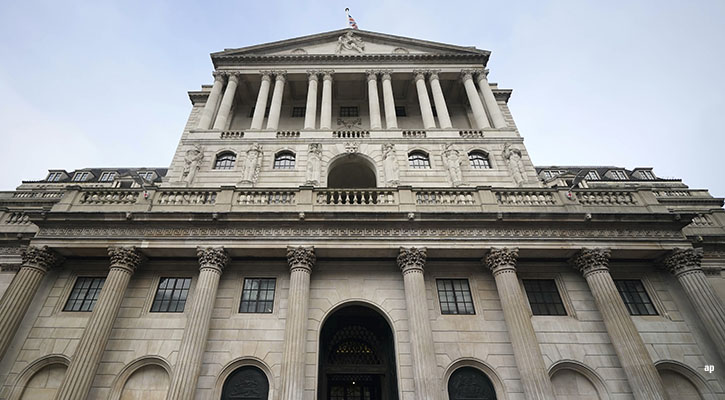From time to time, Morningstar publishes articles from third party contributors under our "Perspectives" banner. If you are interested in Morningstar featuring your content, please contact Online Editor Holly Cook (holly.cook@morningstar.com). In this video, Robin Bew, Editorial Director and Chief Economist at the Economist Intelligence Unit, says the UK is not set to mimic events in Greece as the new government prepares an emergency budget for June, though addressing our fiscal position is going to be pretty painful. Spain, however, is more of an open question, he says. This video was provided by Cantos.
Tony McMahon: Hello, and welcome to the global forecast from the Economist Intelligence Unit. My name is Tony McMahon and as ever, I'm joined by Robin Bew. Today we are going to be looking at the ongoing crisis in the eurozone.
Robin, the scale of the bail-out of the euro really is eye-watering, but is it actually going to work?
Robin Bew: It is absolutely enormous, €750 billion, that's nearly a trillion dollars. Financial markets seem to be very much in two minds about whether this is going to work or not. But it's pretty clear that it provides the liquidity that countries need to get themselves over the next few months, maybe even the next couple of years or so.
But financial markets are questioning, and I think quite rightly so, whether this addresses the underlying problem which is some countries may well be insolvent.
Greece, to us at least, looks pretty clearly insolvent. But there are other markets, possibly Spain, who are going to run into a lot of difficulties if interest rates don't stay relatively low as they go to roll over their debt, and they don't get in place a really harsh fiscal consolidation package.
But that, of course, will depress economic growth and depress tax revenues, and make things in the short-term even more difficult.
So financial markets are very questioning despite the fact that the scale of the package is so enormous that the short-term danger that one of these countries is going to go the wall in the next few months, that's been completely eradicated, but the longer term question about solvency, those issues are still there.
McMahon: But isn't there a risk with many of these economies that if they know that they are going to be bailed out there's a lot less pressure to reduce deficits?
Bew: Well there is absolutely the risk. And if you listen to what their saying in the German press right now that's pretty much all they are talking about, this real fear of moral hazard--that there's a sense that if you allow your fiscal position to unravel and get yourself into a terrible mess that ultimately the threat of leaving the eurozone is so great that other countries will step in to bail you out.
Now, it's very unclear, of course, how this is going to play in the longer term. Of course, one of the conditions of taking advantage of this money is that you have to put yourself under an IMF programme. And IMF programmes usually are pretty stringent. But, of course, the legal force to make a government impose the kind of cuts that we are talking about here, I mean those things don't exist, these are sovereign governments and there is a limit to what they can do. And ultimately it may well come to a choice of being prepared to allow a country within the eurozone to default or bailing them out despite the fact that they're not making all efforts possible. And that crunch point has not yet come, but it may well come in the next few years or so. How far is Germany prepared to push this?
McMahon: Do you think this whole episode has revealed just how interdependent Europe's economies are and in particular the banking sectors?
Bew: Well, what it's really done is highlight the fact that we are starting to see something of a pooling of fiscal sovereignty across the eurozone, which in a very watered down way is matching the monetary pooling that we already have. So we are seeing that there are fiscal transfers, albeit under very stringent conditions now happening across the eurozone. So that's making it pretty clear that public finances are interdependent in some respects. And of course, those public finances are only in difficulties because of the difficulties that we are seeing in the financial system.
So the financial sector is in real trouble, governments have stepped in to stop that. There's a question about whether governments are actually capable of funding that on their own. And then you start to see this kind of blurring of the fiscal boundaries. So what this has actually done is it's injected a little bit more of fiscal coordination, fiscal cooperation into a eurozone, which previously that was completely anathema.
McMahon: The new government in the UK clearly would love to avoid getting involved in rows over the euro. But do you think they're going to be able to avoid it?
Bew: Well I think they're certainly going to be able to avoid throwing money into this pot designed to keep euro members on board. Although of course they are on the hook for the EU contribution, because as a member of the EU Britain of course will have to contribute towards that €60 billion, that part of the pot, which is actually one of the smaller parts.
But in terms of the political conversation it's impossible for them to avoid it. We are seeing, in a very watered down form, some form of pooling of fiscal sovereignty within the eurozone. Britain, of course, is not part of that, but anything which changes so dramatically the economic make-up of continental Europe is something that Britain is going to have a view on, and Britain as part of the EU is going to have to compete against that block.
So while it's not going to necessarily cost Britain any money, politically it's certainly going to be a very big issue for Britain.
McMahon: How has this mess in Europe been viewed in the United States and in Asia?
Bew: The US has been looking on with some trepidation. In fact, the rumours are that Obama had to put in a few phone calls both to France and to Germany to try and push them over the line to get them to agree this package, which I think Europe has found a rather difficult fact to swallow, because it suggests that in the absence of external pressure coming from the US, Europe is still not quite able to get its act together to get these things done.
Now certainly the scale of the package is something that the US approves of. They see that Europe has done something really significant, certainly big enough in the short-term at least to stop the rot.
But the US is extremely worried, because it can see that the longer run story in Europe is still very, very uncertain. There is still this real danger that you could see countries' fiscal positions completely unravelling and that, that leads to all sorts of question markets over the long running survival of the euro.
And the US, of course, is very worried about that, because Europe is the biggest, or Western Europe is still the biggest single integrated economic mass in the world. A meltdown there is a significant problem for the whole global economy. And of course because a lot of world international banks are European banks, big problem more specifically for what it means for the US financial sector.
Asia is slightly different, because they have more of an integrated demand dynamic on their own, I'm sure that if you were in a Chinese politburo right now looking at Europe you'd think what a great job he's done of running your economy relative to the Europeans and a couple of years ago, relative to the US.
But again it's not in Asia's interest to see one of the major economic blocks in the world run into serious economic difficulty. So of course, they're concerned but they have fewer levers to pull to do anything about it.
McMahon: In terms of structural and financial reforms what must Europe do to get back on track? And do you think there's the political will there to enact really tough reforms?
Bew: Well it depends on the country as to whether there's a political will and even what they need to do.
Greece is in such a desperate situation that it seems to us at least impossible they can get out of this without defaulting effectively. We think there will be some kind of negotiated rescheduling of the debt, which is effectively a default. Portugal, to avoid that, probably Ireland as well.
The question is a little bit more open in Spain. Spain is actually in quite significant difficulties. And while in the short term they're not viewed as being one of the major problems, I think when you get out a couple of years people might start to ask some very difficult questions about the Spanish public finances.
The question about whether governments are willing to do what it takes clearly is largely dependent on exactly how much they're going to have to do. And if you look in Greece, I think really the question there is the fiscal consolidation is so onerous that they need to do, the impact that that would have on economic growth is so great, and the social consequences of doing it so large that it's very difficult to see how politically you can square that circle, and so restructuring looks a more attractive scenario.
Now in other countries like Ireland they have more robust institutions. The pain is very great, but the country seems to be able to pull together in order to put those policies into effect.
So it very much depends on how robust your political settlement is, and how much you're going to have to do. And some countries need to do more than others, and I think in some countries it's questionable whether the political settlement is robust enough to allow them to take that action.
McMahon: The new Lib Dem-Conservative Coalition in the United Kingdom is about to introduce an emergency budget with billions of cuts to avoid what they claim would be a Greece scenario. What do you make of that likely budget?
Bew: Well Britain is not going to end up in a Greek kind of situation. Certainly Britain's got a very big budget deficit. That's absolutely true, almost as big as, well, bigger than Greece's as a percent of GDP. But it doesn't have the enormous reliance on external finance that Greece has, so the current account position is more in balance than Greece's. It's by no means in balance, but more balanced.
And Britain has a pretty good track record of consolidating its fiscal position when it has to do so. And so we've seen that happen before say in the 1980s and we are going to see it happen again, and it's going to happen without the need for a default or a rescheduling or all the other horror stories.
But it is going to be pretty painful. The scale of the fiscal consolidation that we need to see here is pretty great. There will be offsets, the pound is weakening that's certain helping, the Bank of England is going to keep interest rates low, that will also help. So it's wrong to think that this is all going to happen without any offsetting support. There will be offsetting support.
But nonetheless the scale of the fiscal consolidation is very great, and we are going to see that played out in the political arena as well as in the economic one. And obviously a lot of the cuts are going to fall in the public sector and that's going to be a very difficult and painful process.
We'll make it and we will make it without having to default or reschedule, but it's going to be very tough and it's going to be very painful.
McMahon: Thank you Robin. Well to get more on the likely prospects for the world economy going forward join us again on Global Forecast next month. Until then thank you and goodbye.























